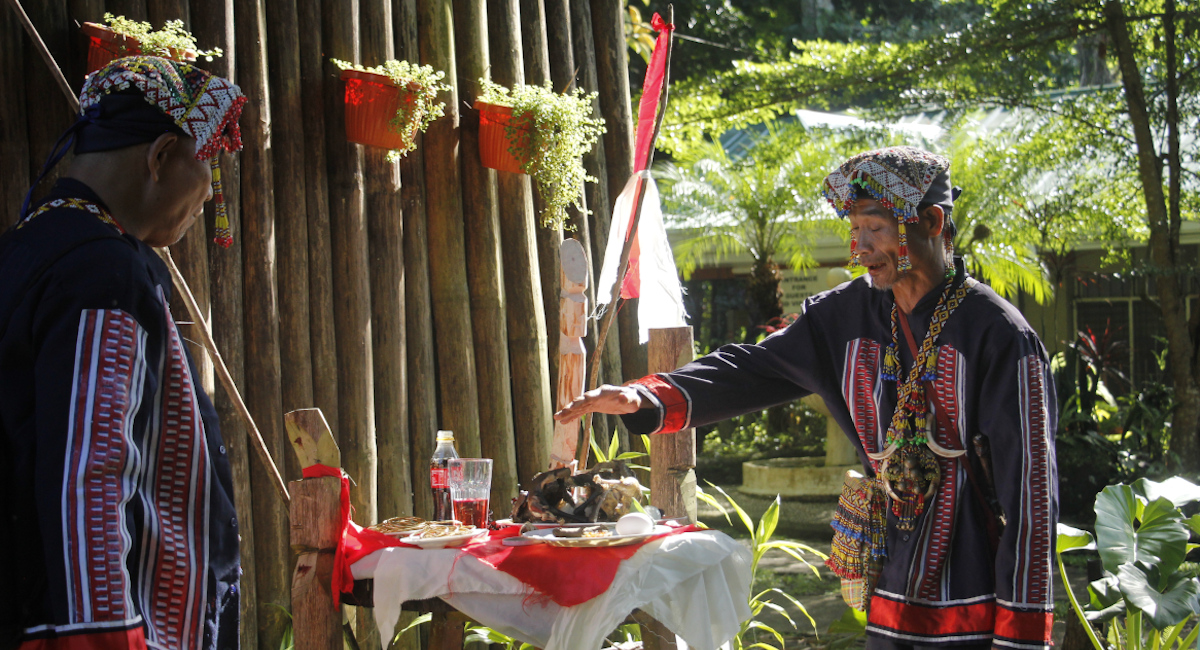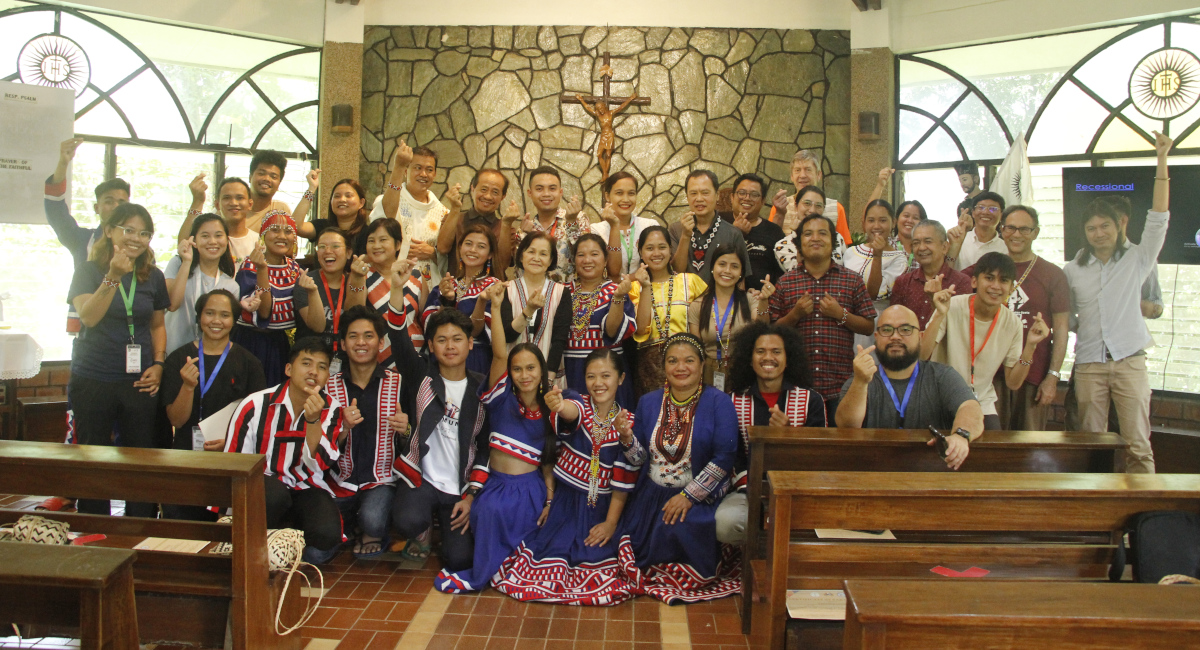
Indigenous identity should not be confined to static notions of primitiveness or simplicity, but should be celebrated for its dynamic nature and its ability to adapt and evolve while retaining its core values and cultural heritage. This was a key message from the recent gathering of Jesuit Companions in Indigenous Ministry (JCIM), attended by delegates from Taiwan, Indonesia, Laos, and the Philippines.
Indigenous came from the Latin word “indigena“, which means “native” or “sprung from the land”. It historically carried connotations of “wildness”, as it is used not only to refer to people but also to species of plants and animals. Even today, indigenous peoples continue to face the stereotype of being perceived as “wild” in the eyes of the mainstream population. Reynaflor Inantay, an indigenous youth from the Tagakaolo tribe lamented: “We are often associated with terms like ignorant or uncivilised.”
However, tradition and modernity are not mutually exclusive. The JCIM gathering, hosted at the Jesuit Retreat House in Bukidnon, a province that serves as the ancestral land for seven distinct tribes in the Philippines, highlighted the importance of redefining indigeneity within a contemporary framework. “Indigeneity is a contingent and dynamic concept that is shaped by historical struggles and lived experiences, internationalist and local social movements, and the relationship between indigenous peoples and their others,” said Fr Ogie Cabayao SJ during his talk on understanding indigeneity.
Fr Cabayao and his team from the Ateneo de Davao University Anthropology Department facilitated the workshop and discussions throughout the three days of the gathering, from 9 to 11 May. His colleague, Lawyer Gus Gatmaytan, noted that the concept of indigeneity offers a way of articulating and advancing the needs and aspirations of indigenous peoples, but continuing dialogue is necessary in recognising their agency and self-determination in shaping their own narratives and determining their paths forward.

“It is important to understand the different contexts of indigenous peoples to foster respect and know how best to accompany one other,” said Zacara Lastimado, a former scholarship student of the Jesuit IP Ministry and now the head of the IP Lead programme of Fr Leoni Mission Foundation.
For years, the IP Ministry of the Jesuits in the Philippines has helped educate generations of indigenous peoples, many of whom, like Zacara, have chosen to serve their own communities. Education remains a top priority of the IPs as it empowers them to assert their rights and actively participate in decision-making processes affecting their communities. By providing access to quality education, indigenous youth gain the skills, knowledge, and confidence necessary to navigate the modern world while staying rooted in their cultural identities.
“Education changes our perspective,” said Reynaflor. “For instance, early marriages exist in our tribes, but with an education, I have come to realise that early marriage is not applicable in our present time.” Reynaflor is pursuing an education degree on a scholarship at Ateneo De Davao University and aspires to return to her community as a future educator. However, she feels torn between serving her people and meeting the expectations of her family.
Unfortunately, economic empowerment poses a significant challenge for indigenous peoples, prompting many of their youth to leave their communities in search of better opportunities to uplift their families from poverty. For centuries, indigenous communities have faced marginalisation and economic inequalities. At the JCIM gathering, the participants were able to hear stories of resilience and triumph of the indigenous partners and collaborators of the Philippine Jesuits in Bukidon. The testimonies of leaders from the Bukidnon Tagoloanon tribe, mothers within the Mt Kalatungan mountain range, and young indigenous people in Cabanglasan demonstrated how through organised advocacy, collaboration with governments and civil society, and a relentless pursuit of recognition, they are gaining greater protection and support.

At some point, the discussion turned to the importance of sharing experiences within the network on how indigenous spirituality can enrich Christian spirituality, especially in the context of liturgy, and vice versa. Interestingly, while the JCIM gathering took place in Bukidnon, another significant event was occurring simultaneously in Loyola, Spain: the 71st Congregation of Procurators. Jesuit Conference of Asia Pacific President Fr Tony Moreno SJ reflected on the address Fr General Arturo Sosa SJ gave to the congregation specifically concerning the universal apostolic preferences. Quoting Father General, he said: “There is so much enthusiasm to do something out there, but the question remains: Is it changing our lifestyle? Is it changing the way we do things?” Fr Moreno stressed the importance of transformation, not just within the indigenous communities that are being accompanied, but also within the Jesuits and mission partners themselves. “I hope that we also change our lives.”
Fr Bros Flores SJ, who serves as JCIM Coordinator, noted towards the end of the gathering how every ministry begins with a charism, “a gift of just being there”. He dreams of a day when 90 per cent of the attendees at the JCIM meeting are indigenous peoples. But he also recognises the challenges that lie ahead. “We have to accept that we are still starting,” he said, “to embrace the uncertainty that comes with where we are, and to find joy in the process of discovery and in establishing effective systems to support our mission.”


